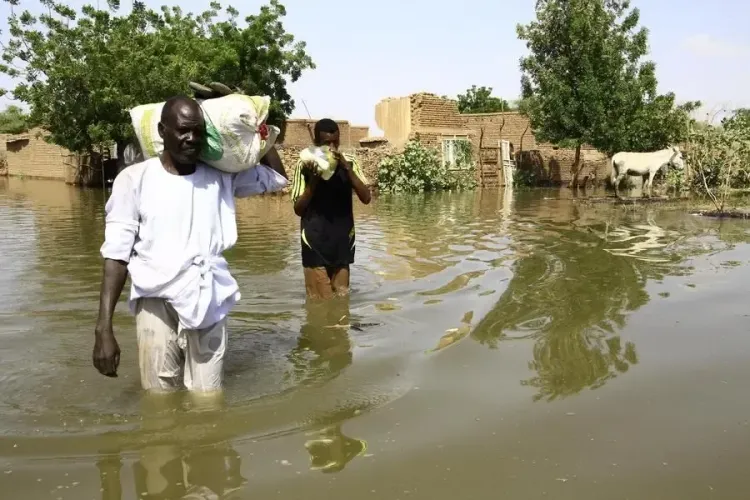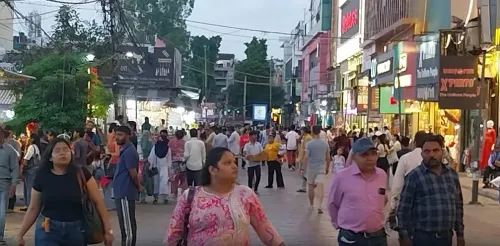How Are Nearly 890,000 People in South Sudan Affected by Floods?

Synopsis
Key Takeaways
- Nearly 890,000 people have been affected by flooding in South Sudan.
- Jonglei and Unity states are the hardest hit.
- Significant damage to homes and infrastructure has occurred.
- Ongoing humanitarian efforts are crucial for providing assistance.
- Future rainfall predictions may escalate the flooding crisis.
United Nations, Oct 14 (NationPress) Almost 890,000 individuals in South Sudan have been impacted by severe flooding, a staggering increase compared to three weeks ago, reported a UN representative.
Farhan Haq, the deputy spokesperson for the UN secretary-general, shared during a daily briefing that the Office for the Coordination of Humanitarian Affairs has noted that flooding persists throughout South Sudan due to intense rainfall and rising water levels along the Nile River.
The overwhelming majority of those affected reside in the states of Jonglei and Unity, with nearly a third displaced and seeking refuge on elevated ground, he explained.
This flooding has led to significant destruction of homes, agricultural lands, educational institutions, health facilities, roads, and other vital infrastructure, complicating humanitarian access, according to the spokesperson.
"In spite of these difficulties, the UN and its humanitarian partners are tirelessly providing life-saving support, including shelter, food and nutritional assistance, cash support, as well as health and water sanitation services," along with sandbags and other materials for flood control, Haq stated.
Forecasts indicate that above-average rainfall is anticipated across much of South Sudan, increasing the risk of further flooding, he added.
As of October 13, the 2025 Humanitarian Needs and Response Plan for South Sudan, which aims to raise $1.7 billion to assist 5.4 million people, is only 30 percent funded, hindering the capacity to enhance emergency responses, stock supplies, and maintain operations, according to Xinhua news agency.
Widespread flooding caused by heavy rains has also resulted in 19 fatalities and impacted approximately 639,225 others across 26 counties in six states, as reported by a UN humanitarian agency.
At least 121 health facilities have been affected, with reports of 144 snake bites and 3,391 cases of malnutrition across 11 counties.
South Sudan is particularly susceptible to flooding due to its geographic position in the Nile River Basin, low-lying terrain, and various contributing factors such as heavy precipitation and elevated water levels in Lake Victoria. The intensity of flooding has escalated in recent years, displacing countless individuals, destroying farmland and livestock, and exacerbating food insecurity.









